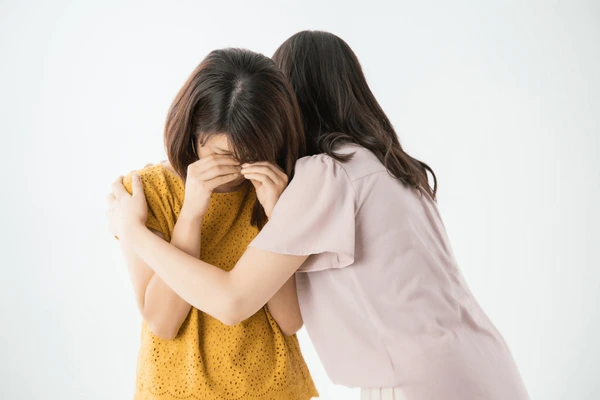Supporting a grieving friend can feel overwhelming. You want to help, but you may fear saying the wrong thing or unintentionally hurting them when they’re at their most vulnerable. Grief makes emotions unpredictable, and even well-meaning comments can sting.
The truth is: what your grieving friend needs most isn’t perfection—it’s presence, patience, and genuine care.
In this guide, you’ll learn compassionate, practical ways to show up for someone in mourning, while being mindful with your words and actions.
Start by Simply Showing Up
Grieving people often feel isolated—even in a crowded room. Instead of asking, “Do you need anything?” offer specific, gentle support:
- “I can bring dinner on Wednesday—does that work?”
- “I’m going to the store; what can I pick up for you?”
- “Would you like me to sit with you for a bit?”
Small acts of consistency matter. Your presence—physical or emotional—can be a grounding force for them as they navigate their emotional recovery after loss.
Avoid Clichés and Comparison Statements
Certain phrases are often said with good intentions but can unintentionally invalidate someone’s grief.
Try to avoid saying things like:
- “They’re in a better place now.”
- “At least they lived a long life.”
- “I know exactly how you feel.”
These comments shift the focus away from their pain. Instead, try:
- “I’m so sorry you’re going through this.”
- “This must be incredibly hard.”
- “I’m here for you however you need.”
Being emotionally aware is a key part of mental wellness self-care—for both you and your grieving friend.
Offer Practical Help (Without Being Pushy)
Grief often disrupts daily functioning. Errands, chores, and basic routines can feel impossible. Practical support can make a huge difference.
You can help by offering:
- Meal prep or grocery runs
- School pickups or childcare
- Cleaning or laundry
- Handling phone calls or paperwork
If your friend is also managing parenting responsibilities during grief, consider exploring resources similar to baby mama support—community and emotional help can be especially comforting during difficult seasons.
Listen More Than You Speak
When someone is grieving, what they need most is someone who listens without judgment, interruption, or problem-solving.
Sit with them in silence.
Let them cry.
Let them talk.
Let them repeat stories.
Grief is not linear, and listening becomes one of the deepest forms of love.
Listening also ties back to your own self-care habits for busy people—you can’t support others well if you’re emotionally drained yourself.
Help Them Rebuild Healthy Routines
As time passes, encourage gentle steps back into daily life. Not a full schedule—not a forced “move on”—just small actions that help restore balance.
You might gently encourage:
- Going for a walk together
- Sharing a meal
- Trying a calming activity
- Daily journaling or breathing exercises
Point them toward grounding resources like daily self-care practices or a self-care checklist to help them reconnect with themselves without pressure.
Keep Checking In—Long After Others Stop
Grief lasts far longer than most people acknowledge. After the funeral, when life “returns to normal” for everyone else, a grieving person is often left alone with their pain.
Set reminders to check in:
- One week later
- One month later
- On anniversaries
- On tough days or holidays
A simple “Thinking of you today” text can be incredibly meaningful.
Respect Their Process—Not Your Timeline
Everyone grieves differently. Some need conversation; others need silence. Some cry openly; others shut down. Some want company; others want space.
Support without judgment.
Love without expectation.
Allow their grief to take its natural shape.
And remember: part of supporting someone else means maintaining your own self-care habits for busy people so you can show up steadily and compassionately.
Final Thoughts
You don’t need the perfect words to comfort a grieving friend. What truly matters is your willingness to show up, stay consistent, listen deeply, and respect their journey.
Grief is heavy, but with the right support, your friend can slowly regain emotional balance and find meaning again. Your kindness can become one of the anchors they hold onto during their darkest moments.
If you’d like additional guidance on caring for yourself while supporting others, explore more resources on Daily Dose of Dee, including articles on daily self-care practices, mental wellness self-care, and emotional recovery after loss.



